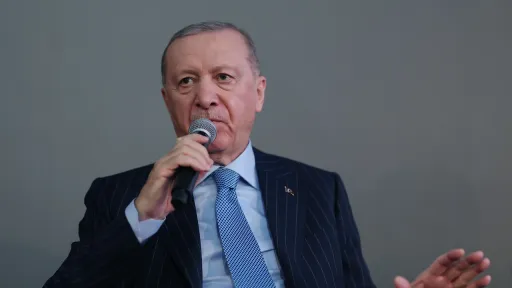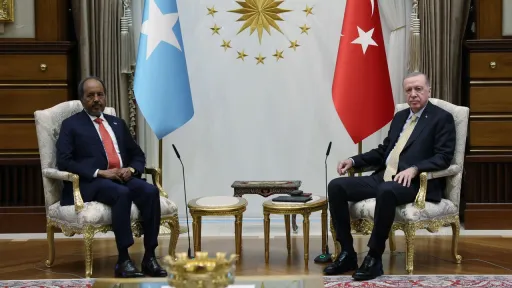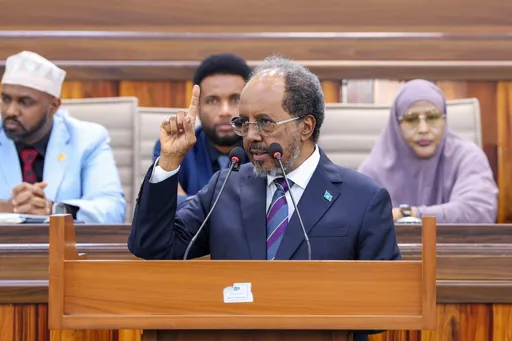By Yahya Habil
Among many other things, France has always been known for its football in modern times.
Its national football team has been very successful, winning two World Cups, constantly competing for trophies, and boasting some of the world’s greatest players.
However, the phenomenon the French national team is most known for is that many of those players who play for the country are in fact not French in origin.
Many players that have played for the French national team, regardless of the era, are of African origin, thus reflecting France’s colonial history and legacy.
For example, according to Sportskeeda, 87% of the players in France’s World Cup winning squad in 2018 were of immigrant origins.
This phenomenon and “issue” extends beyond the national team and seeps further into all levels of French football, including the several local football leagues, with many players in those leagues being of African origins.
Naturally, this has fuelled many controversies and debates, with many people in France not favouring French football’s ethnic composition.
This dilemma in French football reflects France’s social reality, which is between multiculturalism and discrimination.
In the case of France’s national team, this reality is apparent when match results are not in their favour, as the racism against players of African origin resurfaces.
To put this into perspective, Karim Benzema, one of the French national team’s main stars, who is of African origin, once said: “If I score I’m French, if I don’t I’m an Arab”.
The fact that racism and discrimination towards players of African origin exist in France means that there is a large number of such players.
According to Quartz, the number of African players in Ligue 1 (the top division of French football) is 107, making the league the highest in Europe for contracting African players.
However, these 107 players have not been naturalised and do not hold French citizenship.
This means that the number of players of African origin in Ligue 1 only increases further if one were to factor in the French players of African origin who are French citizens.
This makes it unsurprising to see the foundation of the French national football team being built on players of African origin.
Furthermore, the French national team’s nickname, “Black, Blanc, Beur” indicates this high degree of African presence in French football.
The nickname is a nod to the three different types of races that make up the French national team, with the word “Beur” referring to the players of North African origin.
However, as blended as football in France is, it is also stained by racism, albeit the racism stems less from the system of French football itself and more from the actors or stakeholders that surround and affect it, such as the media, politicians, the fans, and even the players and coaches.
Nevertheless, there still is racism that stems from within the institution itself.
In 2011, Laurent Blanc, the then-French national football team manager, suggested in a French Football Federation board meeting the implementation of a quota regarding the percentage of players of African origin in French national team’s youth system.
He specifically suggested a cap of 30%, claiming that France needs more players aligned with its culture.
Furthermore, he claimed that the Spanish national team was free of problems due to the absence of “blacks”.
Similar racist comments and notions are found throughout French media and politics.
The statement that resonates the most with Blanc’s earlier remarks is one of many remarks made by Jean-Marie Le Pen, a far-right politician who is the former leader of the National Front Party.
Much like Blanc, Le Pen played on the themes of belonging and “Frenchness.’’
She once claimed that players of African origin in the French national team do not properly sing the French national anthem, citing the now former French football star Zinedine Zidane as an example of a player that, according to Le Pen, only “mumbles” the national anthem.
The remarks above from Blanc and Le Pen are over a decade old. They show how racism in French football has always been an issue. This issue remains persistent.
French football coach Christophe Galtier was recently summoned to stand for trial over comments he allegedly made during the 2020-2021 football season when he managed Ligue 1 side OGC Nice.
He allegedly said that the team was “full of scum” and that “there are only blacks and that half the team is in the mosque on Friday afternoons.”
Another example of how persistent the issue of racism is in French football is the recent remarks by France’s current, top football star Kylian Mbappé.
Mbappé, who is of both Cameroonian and Algerian descent, stated that he considered quitting the French national team in 2021 as a result of noticing a lack of support after he was subjected to racist abuse for missing a decisive penalty in the team’s defeat at the Euros.
This incident lines up well with Karim Benzema’s quote above.
All the same, the fact that Galtier has been summoned to stand for trial over his alleged comments is a sign of progress regarding the issue of racism in French football, as Blanc, who previously made somewhat similar comments, was not.
However, that does not mean that constructive solutions to the problem have been found.
The problem must be tackled from the root. Why only players of African origin who are the target of these racist incidents?
If the reason for that is because they are immigrants who are not truly French, then why haven’t Raymond Kopa, Michel Platini, Youri Djorkaeff, and Robert Pires been subjected to any racist abuse before?
Is it because they are immigrants from fellow, white European nations? Is it because they are not black or brown? How is Platini, an immigrant, more French than Zidane, another immigrant?
The real issue with French football, which can be applied to France as a country, is an obvious desire to play the role of the “assimilator” by the authorities.
However, multiculturalism comes with a price, which is true acceptance and one that France must pay due to its colonial past.
The author, Yahya Habil, is a Libyan freelance journalist focusing on African affairs.
Disclaimer: The viewpoints expressed by the author do not necessarily reflect the opinions, viewpoints and editorial policies of TRT Afrika.
























